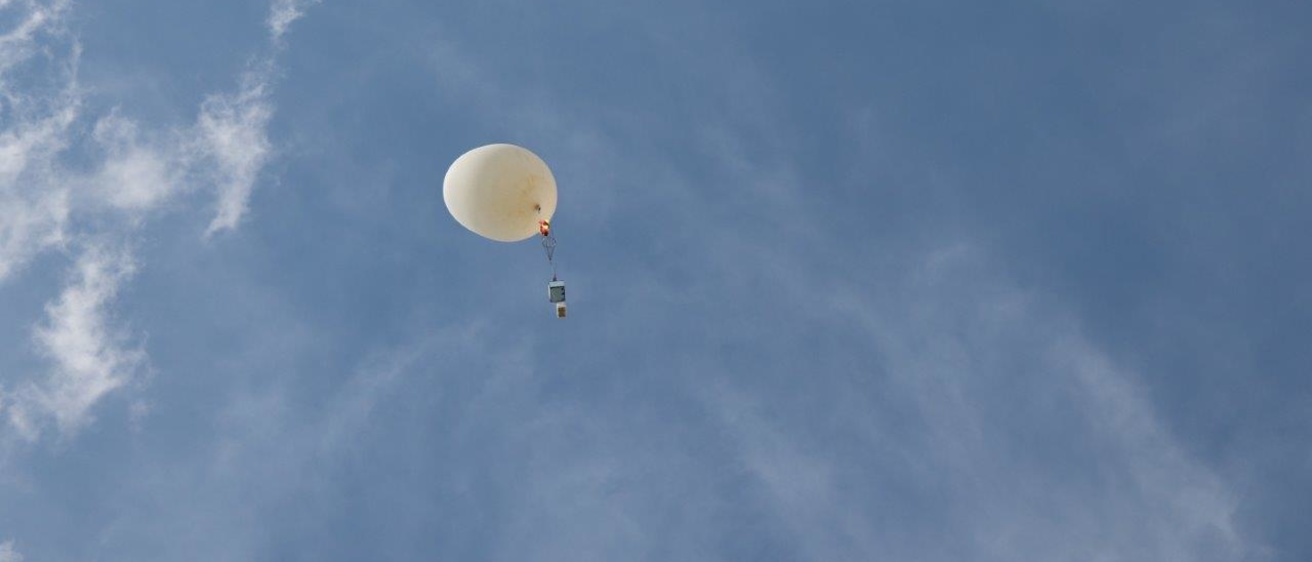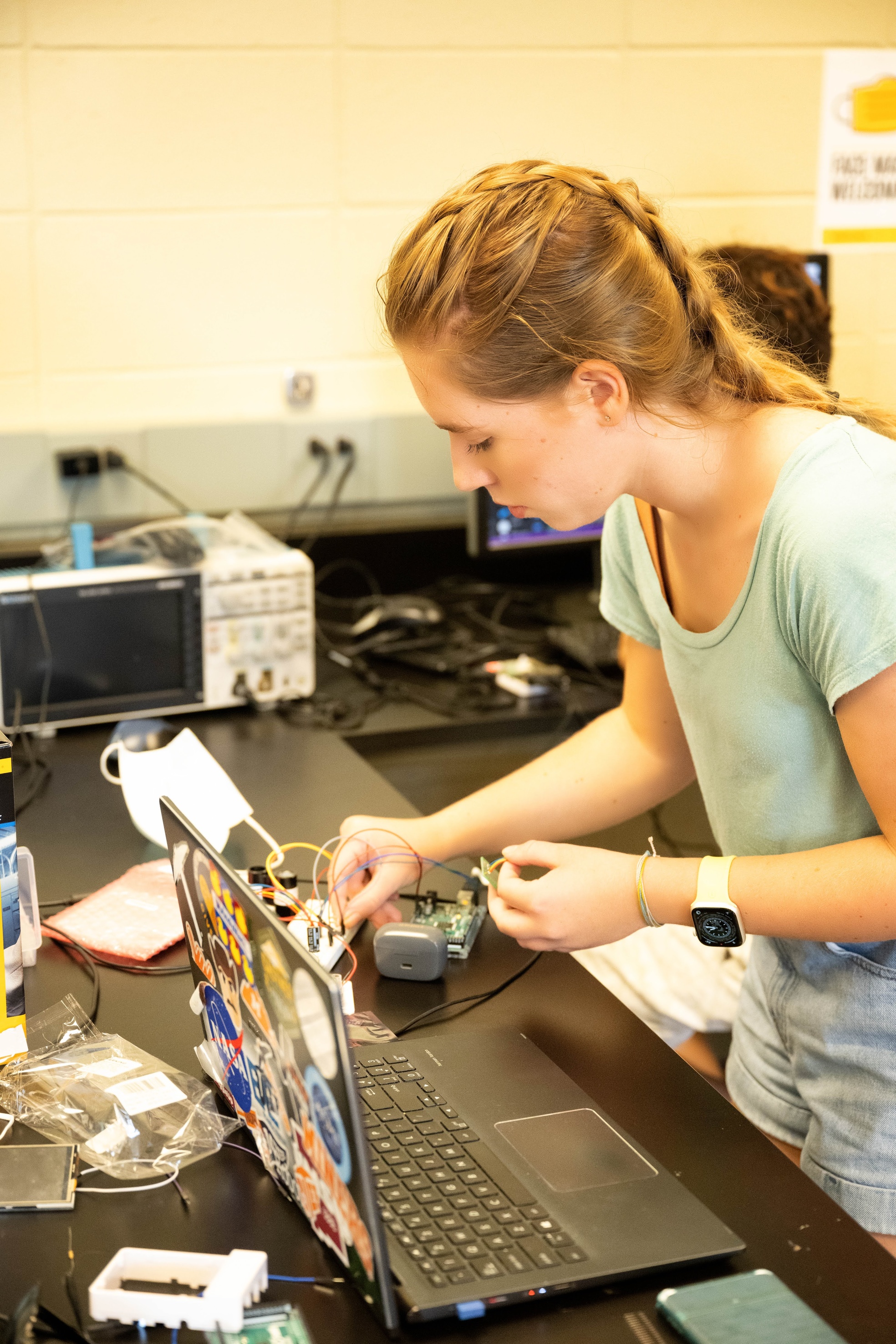
Balloon aloft
Breadcrumb
- Home
- FAQs
FAQs


Who should apply?
- Current undergraduate students at 2- or 4-year institutions in the US. You must have completed at least one year of undergraduate work and will still be enrolled at a 2- or 4-year institution by the time of the academy.
- Be able to commit to the entire 2.5-week academy with no other commitments. We work from 9 am to 5 pm every day, with work often extending past 5 pm and into the weekends. You will not have time to work another job or complete a summer course during the academy. We do our best to give you the financial support of the stipend to help make participating possible.
- No previous research, programming, or 3D printing experience is necessary, and there is no minimum GPA requirement. In the past, we have had students majoring in physics, environmental science, geography, engineering, computer science, and geology. We are looking for students excited to learn new skills in a fast-paced team experience.
About the Application
Who is eligible for the program?
One of our goals for the program is to create a diverse cohort from a variety of institutions (e.g., community colleges, liberal arts colleges, universities, etc.), backgrounds, and experiences. Foreign students studying in the US may apply. No previous research or programming experience is necessary, and there is no minimum GPA requirement. We are looking for applicants enrolled as undergraduates who have not graduated by the time of the academy. If you have any questions about whether you should apply, please contact the program facilitators.
What do I put in my personal statement?
Your personal statement will be a one-page essay describing: 1) why you would like to participate, 2) how you meet the criteria, 3) why you are an ideal candidate, and 4) how you have been involved in STEM. The personal statement is your opportunity to tell us about yourself, your motivations, your scientific interests, and what motivated you to apply for this program. Details in a personal statement can tell us a lot about your fit in the program. Highlight any previous leadership or teamwork you may have been involved in and how it is relevant.
What criteria are applications reviewed on?
Each application is reviewed on a range of criteria that include personal motivation and determination, your interest in earth and space science, and how much this program might impact your future career. We are looking to recruit hard-working, motivated students who will be strongly impacted by this program. Prior experience is not required. One of the goals of the program is to provide an opportunity to gain experience. The personal statement carries significant weight.
I don’t know anything about space-based missions, electronics, instrument design, etc. Should I apply?
You do not have to have any experience or detailed knowledge about any of these topics earth and space observation to participate! But these topics should be of interest to you. Your personal statement is the place to tell us about why it interests you or why you think it could interest you.
About the Review Process
What does the selection process and timeline for offers look like?
The application deadline will be in late January. A committee of reviewers will go through all applications and create a shortlist of the top applications and make selections from there. Decisions will be communicated during the February-March timeframe.
How many students do you accept?
We recruit between 10 and 16 students each year, depending on funding.
About the Program
Where will I be living if I am accepted into the program? Will I have roommates?
You will be living in a co-ed dormitory on campus. Right now, we are planning for single occupancy. If you have any requests or questions, don't hesitate to get in touch with the program facilitators.
I am transgender/gender non-conforming. What would my housing situation look like?
There is flexibility in the housing arrangements, and we will find a situation you are comfortable with.
Do I have to live at the University of Iowa with the other students?
We are happy to work with you to find the best solution for your summer. We want you to be successful and remove as many obstacles as we can. If you have a family and need larger accommodations or live a commutable distance away, we can give you value towards your living expenses.
What happens if I already have a commitment during the program?
Two and a half weeks is a very short amount of time to accomplish a research project, so we expect you to be present from 9 a.m. – 5 p.m. every day unless circumstances are exceptional. We also expect you to participate for the full duration of the program. We will not be able to accept anyone who cannot meet these requirements.
If I am accepted, how do I make travel arrangements to get to Iowa City? When should I travel?
After you are accepted, we will work with you to arrange travel to best suit your needs. Some students drive to Iowa City, and others will need to book a flight and ground transportation. All reasonable travel will be covered by the program.
Do you provide any living expenses during your program?
Yes, you will receive $500 per week and an additional food allowance of $100/week. Your housing will be fully covered, and your travel to and from Iowa City will be taken care of.
I have a full-time/part-time job nearby. Can I do both?
This program will be a full-time job, so you will not be able to work an additional full-time job throughout the duration of the program. You will be expected to be at your lab from approximately 9 a.m. – 5 p.m. Monday to Friday. On the weekends and some nights, we have planned group activities, or you might wish to continue working on your project. We do our best to give you the financial support of the stipend to help make participating possible.
How does participating in Edge of Space benefit me as a student?
Many of our previous students have reported better academic and career opportunities as a result of taking part in the program, including internships, research offers and employment positions. In general, most students get a good idea of if and how they can make space-based research and/or spaceflight hardware a focus for their future endeavors. Some students rearrange their career plans for the future after going through this course. It can light a spark for discovery and open doors to new opportunities. The greatest benefit is a feeling of welcoming and belonging in STEM and a network of peers and professionals that you can carry with you as you go forward to the next step.
What would be the tentative schedule be for the academy?
Wednesday | Arrive in Iowa City |
Thursday | Academy Starts in Van Allen Hall; Start training labs |
Friday | Finish training labs; Introduction of teams |
Saturday | Group activity; Explore Iowa City; Get started on project |
Sunday | Free time to explore Iowa City; Get started on project |
Monday | Announcement of teams; Design and start building sensors |
Tuesday | Mission presentations by teams; Build sensors |
Wednesday | Build sensor |
Thursday | Flight readiness review; Test sensors |
Friday | Fly or launch sensors |
Saturday | Free time to explore Iowa City; Work on projects |
Sunday | Free time to explore Iowa City; Work on projects |
Monday | Back up data collection day; Start data analysis |
Tuesday | Data analysis; Prepare poster and oral presentation |
Wednesday | Present poster presentation at UIowa Summer Undergraduate Research Festival |
Thursday | Present oral presentation to UIowa Deans, Faculty, Staff, and Graduate Students |
Friday | Wrap up with graduate student panel and discussion of lessons learned. |
Saturday | Leave Iowa City |